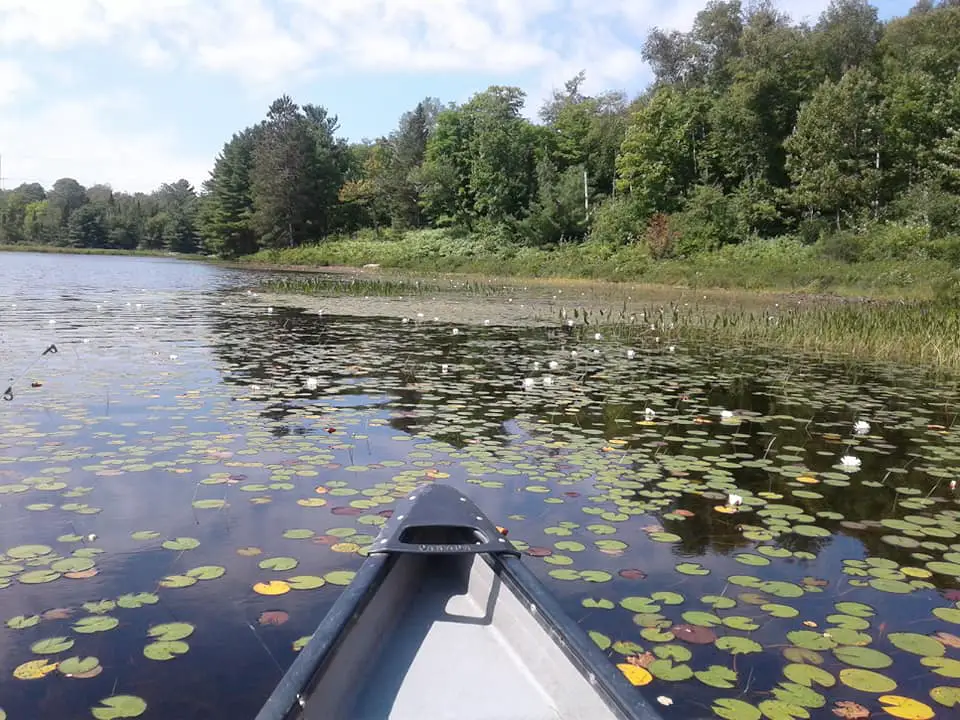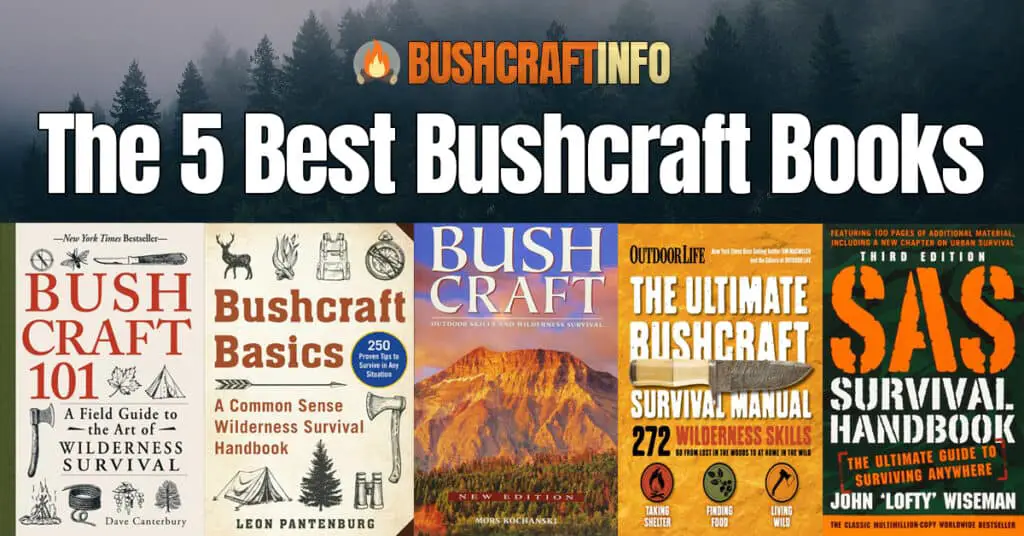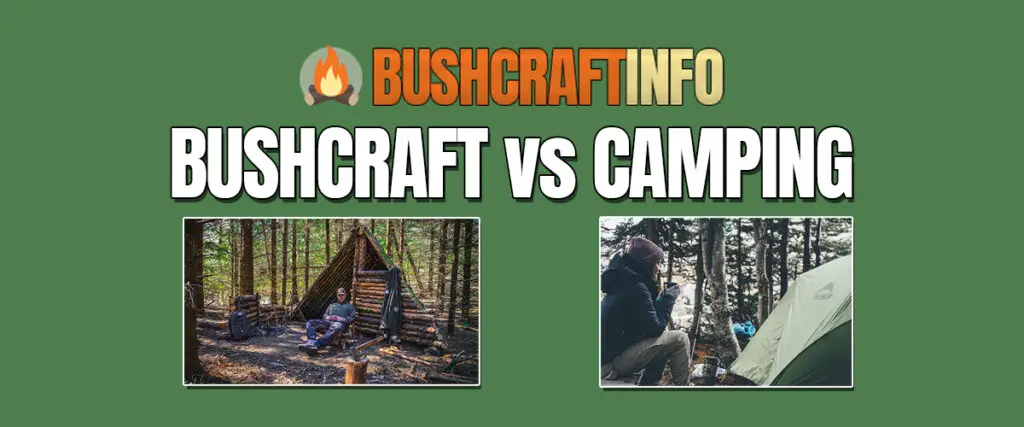Thanks to the emergence of bushcraft YouTubers and television shows like History Channel’s Alone series, more and more people find themselves wanting to emerge themselves into the world of nature by way of bushcraft. But what is bushcraft exactly?
The definition of bushcraft
Bushcraft is the practice of self-reliance within the wilderness. It’s not necessarily all about wilderness survival, however, the skills you learn through bushcraft will aid you in wilderness survival situations. Bushcraft is about learning and gaining confidence in an environment in which you have no control over.
It’s also a great way to have some fun in nature, something we all need in our lives.
Things you will learn while studying and practicing bushcraft include:
- Fire building
- Shelter building
- Hunting
- Tracking
- Fishing
- Foraging
- Navigation
- Woodcraft
- Knot tying
- Water procurement
We’ll touch on each one of these skills you will learn in a moment, but first let’s take a look at the benefits you’ll experience with bushcraft.
The Benefits of Bushcraft
Before I got into the bush, I was your typical city slicker stuck in the rat race, wasting away without ever truly experiencing what nature has to offer.
In the years since getting into this new “hobby” of mine, I have gained confidence in my abilities to thrive in all situations, became more in tune with nature, but perhaps the biggest thing that bushcraft has done for me was increased my quality of life.
Living how we are supposed to live and how our ancestors lived, learning the skills they were unable to pass down to me, has changed my outlook on life. When you think about it, bushcraft really isn’t a hobby so much as it is a lifestyle. A lifestyle that turns you into a better, more complete human.
Over time in the bush, you can expect to reap all the following benefits:
- Increased ability to adapt and overcome difficult challenges
- Become more self-sufficient and less reliant on technology
- Increased self-confidence
- Greater survival ability
- Better equipped to deal with problems that may arise in life
Fundamental Bushcraft Skills
The great thing about spending time in the bush practicing your craft is that it seems there is a never ending list of things that you can learn and improve at.
As you grow and advance your skill level, more challenges and obstacles will continue to arise, which will require you to learn more and more skills.
But, here are some of the many bushcraft skills you can expect to learn as a beginner.
1. Fire building
This is probably the most basic skill you can master when starting out. Fire provides warmth, light, cooking, signaling, protection from predators, etc…
You don’t want to be caught unprepared should you get lost or find yourself having to stay an extended time in the bush. Knowing the many ways to start a fire in the bush is a massive security blanket.
For example, should you be out in the wilderness while it’s cold and wet; knowing how to create a fire in those harsh conditions is extremely important.
2. Shelter building
Building bushcraft shelters is another fundamental bushcraft skill you must know if you plan on spending lengthy periods of time in the bush. Building a good shelter gives you comfort and safety.
From lean-to’s, tarp shelters all the way to a quinzhee during the winter. Knowing how to build the right kind of shelter from natural materials for your environment will be key.
3. Hunting & Fishing
Perhaps the two most important skills you can teach yourself in life.
The biggest benefit that comes from becoming proficient in hunting and fishing is your ability to feed yourself. You need food to keep on living. When we think of food, most people don’t consider how much time, effort and skill it takes to be able to hunt and fish proficiently using numerous methods in the bush in order to provide a meal for yourself and your family.
Plus, food purchased from a grocery store doesn’t taste nearly as good as wild food you obtained yourself.
4. Tracking
Learning how to track animals in the bush is one of the best skills you can develop. Tracking allows you to determine where game trails lead and what different animal tracks look like.
Knowing these details helps you become aware of your surroundings and increases your chances of finding something useful along the trail, which in turn can provide you with food.
5. Foraging
Another valuable skill you can acquire in the bush is being able to identify edible plants and berries. This knowledge not only opens up an entirely new world of food in the bush, but also saves money by providing you with natural foods instead of having to purchase them from stores.
Navigation is perhaps one of the most ignored aspects of bushcraft.
If you’re going into the bush alone, then navigation becomes very important. Being able to navigate through unfamiliar terrain without getting lost is essential.
Being able to read maps, compass directions and recognize your surroundings is just part of this skill set.
7. Woodcraft
Woodcraft is separate from bushcraft, however, the things you learn in woodcraft can significantly improve life around your bush camp.
Becoming skilled at making things from wood requires practice and experience. Woodworking is no exception.
Learning how to make simple bush tools from wood such as bow drills, hatchet handles, traps, bows, arrows, hooks, lures, furnishing, utensils, etc… is invaluable because these are things that can help you to survive in the bush.
8. Knot tying
Knots come in handy throughout every aspect of our lives. From tying down luggage to securing lashings on your shelter in the bush, understanding basic knots is vital.
It’s always good to have a wide variety of knot options up your sleeve.
9. Water procurement
Procuring water in the bush isn’t easy, but it is essential for survival.
It involves knowing when to collect rainwater, digging wells or catching flowing streams. The more you understand about procuring water, the better prepared you’ll be should you find yourself stranded out there.
You won’t always have a water filter on you.
If you’re into reading, I highly suggest taking a look at a bushcraft book. Books have helped me out a ton when I was getting started learning all the different skills.
Required bushcraft tools
Now that we have answered the question, we can look at some trade bushcraft tools. Even at the most basic level, you will need some tools to help you out.
I actually created this post which goes into more depth about the tools you will need for bushcraft, feel free to check that out.
However, here is a quick rundown of the basic tools you’ll need for practicing bushcraft as a beginner.
- Knife
- Axe or Hatchet
- Folding saw
- Fire starters
- Compass
- Knife sharpener
- Paracord or other cordage
- First aid kit
- Backpack / Rucksack
- Pot
- Multi-Tool
- Tarp
- Fishing gear
Bushcraft vs Survival
The two terms “bushcraft” and “survival” are often used interchangeably. However, they mean slightly different things.
Bushcraft teaches you how to use nature’s resources to create items that can assist you in surviving in the wilderness. While survival is all about staying alive, bushcraft is much broader than that.
However, when it comes to being put in survival situations the skills you’ve learned through bushcraft will be more than enough to help keep you going and in that way, survival skills aren’t all the much different.
Final thoughts
Bushcraft changed my life, and I think it can change yours. The wilderness living skills you learn are really invaluable.
It’s not hard to get started, either! Simple things like wood carving, gathering water and even splitting logs are a fun and easy entry way into the bush.
If you are serious about getting into this, I highly recommend joining a bushcraft community like bushcraftusa.com.
Was this post helpful?

Hey I’m Josh! I have been practicing Bushcraft for a little over 6 years now! I Started this website to review awesome bushcraft gear that I love as well as share information I have learned along the way!


